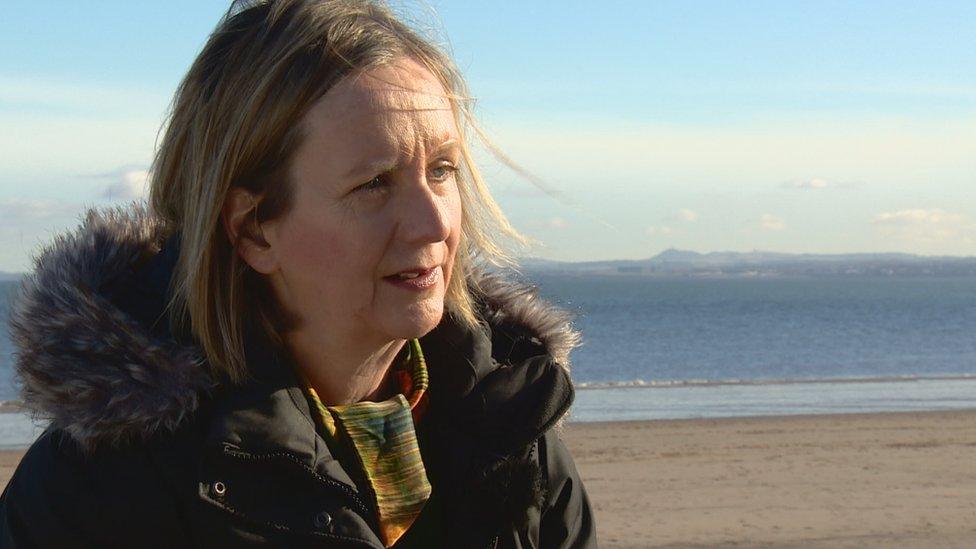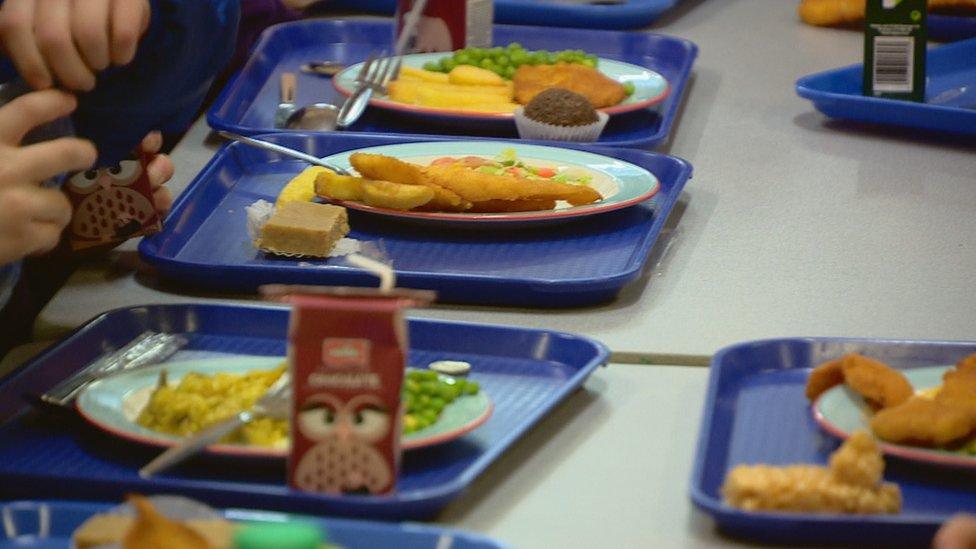Some hospitals spending 94p per meal
- Published

Some Scottish hospitals are spending just 94p per patient meal, the BBC has learned.
Figures obtained by BBC Scotland show Borders hospitals spent £3.18 per day per patient on meals and snacks.
Other health boards such as NHS Ayrshire and Arran and Dumfries and Galloway spent a similar amount.
NHS Grampian spent £3.50 per day which it said broke down as 94p for each of the two main meals and £1.62 for snacks and drinks.
Nutritional expert Prof Mike Lean said: "There must be a lower limit below which quality will be sacrificed in a variety of ways.
"Meal quality has a number of elements: it has to look good, taste good, texture must be good and it has a biological importance - so it must be nutritionally good."
Spending on food and drink per patient
Dumfries and Galloway £2.80 to £3.40 per day
Borders £3.18 per day
Ayrshire & Arran £3.20 per day
Grampian £3.50 per day
Lothian £3.82 per day
Shetland £6.82 per day
The most recent Scottish Care Experience Survey, external said: "Food is an area where a substantial percentage of people reported a negative experience, however they were more positive about the drinks they had received."
It said 18% were not happy with the food they had received and 7% were not happy with the drinks.
It said positive responses to the question 'I was happy with the food/meals I received' ranged across health boards from 56% to 91%.
A spokeswoman at NHS Ayrshire & Arran said the board provided patients with "high quality and nutritionally-balanced meals, based on a wide menu choice, at an average cost of £3.20 a day".
She said food and drink was bought through national procurement contracts to get the best deals possible.
NHS Lothian said its spent an average of £3.82 per patient across its hospitals, but costs ranged from £2.70 to just over £5.
A spokeswoman said: "We are constantly working to harmonise products, recipes and methods to reduce this cost range.
"It is important to note that, in this case, cost is not a reflection of quality since St John's hospital kitchen provides our cheapest meals but is widely recognised for the high quality meals served."

Public Health Minister Aileen Campbell said: "We have a set of very rigorous nutritional guidelines that we expect all boards to adhere to.
"There will be differences in terms of price but we do expect that the nutritional guidelines will be adhered to."
The figures also found that some hospitals were sourcing 50% of their food from abroad.
Twelve out of 14 health boards said they were importing chicken from Thailand and carrots from Belgium.
Food sourced outside the UK by health boards last year:
Ayrshire & Arran - 50% (15% meat outwith UK)
Grampian - 50% frozen produce / 40% chilled contract
Highland - 35/40 % chilled contract
Western Isles - 50% frozen / 40% chilled
Borders - information not kept
Dumfries and Galloway - Seasonal vegetables, meat, poultry and fish
Lanarkshire - Corned beef, chicken breast strips, cheese portions, rice crispies, cornflakes
Lothian - Prawns, mashed potatoes, poultry, turkey, carrots, raspberries
Shetland - Seasonal fruit and vegetables
Forth Valley - No information supplied
Fife - No information supplied
Greater Glasgow - No information supplied
Tayside - No information supplied
Orkney - food bought within UK. Some may originate outside.
Conservative MSP Brian Whittle started asking questions in parliament last year about where patients' food comes from.
He said public sector procurement needed to be looked at by the Scottish government.
"The massive disparities in local sourcing, spending and food waste across health boards in Scotland is deeply concerning," Mr Whittle said.
"If health boards are choosing to ignore high quality, local food in favour of cheaper alternatives from overseas, they're making a false economy."
He added: "Eating healthy, high-quality meals when you're in hospital can make a big difference to your recovery.
"If patients aren't eating well, they can't get well."

Food Waste:
Shetland - 14.96%
Lothian - 10.73%
Orkney - 9.6%
Greater Glasgow & Clyde - 7.5%
A spokeswoman at NHS Ayrshire & Arran said: "To help reduce waste, we ask patients to choose their next meal as close as possible to the meal time - for example, at breakfast, patients choose their lunch.
"This means that our rate of unserved meals is, on average, 3%, well below the recommended 10% target for waste.
Shetland health board said catering staff were always working to reduce food waste but that it was sometimes unavoidable due to factors such as high fluctuations in bed occupation and delayed discharge.
Greater Glasgow and Clyde NHS board said it was a challenge to control food waste but action was being taken to ensure it was not too high.
A spokeswoman for Glasgow said in recent years it had invested £10m to create two new kitchens which "cook fresh, nutritious, healthy food supplied to all our hospitals".
She said: "The move to two new kitchens ensured all meals are now produced locally and brought to an end the contract with Tillery Valley in Wales which previously supplied freeze-cook meals to Glasgow Royal Infirmary.
"The reorganisation also saw the closure of a number of older hospital kitchens, which were no longer fit for purpose and were being under-used."
- Published2 March 2017

- Published28 February 2017
